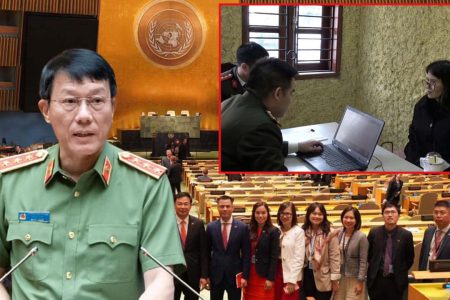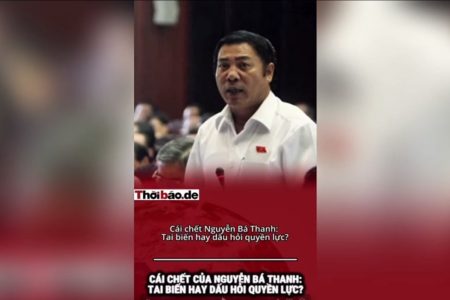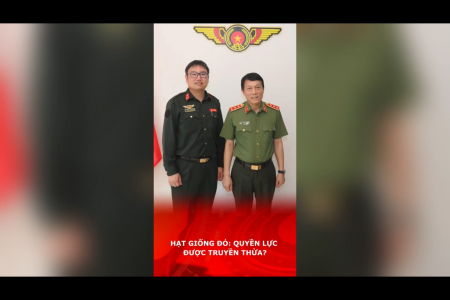
On March 10, Minister of Planning and Investment (Planning and Investment) Nguyen Chi Dung emphasized that this is the golden time for state-owned enterprises (SOEs) to restructure and prove their role as the key economy of the country.
He made this statement when the Ministry of Planning and Investment organized a consultation for the project „Development of large-scale SOEs, especially State-owned multi-owned economic groups to promote the role of paving the way, leading the for enterprises of other economic sectors, in accordance with the Party’s undertakings and guidelines in the new era.”
Need a management mechanism
Recognizing the MPI’s project, Dr. Le Dang Doanh, former director of Central Institute of Economic Management (CIEM), on March 12, told RFA that, in the context of the loss rate of SOEs are a big, long-term problem and have been discussed a lot, and the introduction of a project to continue investment and support SOEs needs to be carefully considered. What worries them most is, how to find an appropriate management mechanism because the current management mechanism has too many problems. He said:
“The problem that I am concerned about is the issue of the management mechanism with SOEs that needs to be changed. Investing in SOEs but what is the owner’s supervision policy, what is the role of community supervision, how are SOEs‘ responsibilities for business performance, and environmental responsibility? Those are essential or good goals will be difficult to achieve.”
According to a report submitted to the National Assembly in October 2020, Vietnam’s Government said that as of December 31, 2019, Vietnam had 76 state-owned groups, corporations, and parent companies with total assets of over VND2.73 million billion. In which these groups, 12 groups, and corporations have accumulated loss of more than VND7.44 trillion. In particular, the outstanding losers must include: Maritime Corporation lost more than VND3 trillion, Chemical Group lost more than VND2.78 trillion, Coffee Corporation lost more than VND819 billion.
Dr. Le Dang Doanh also said that when giving incentives to SOEs, project developers need to study very carefully Vietnam’s international commitments, especially those in the FTAs that Vietnam recently signed to avoid violating these commitments.
“Vietnam has signed many free trade agreements such as the CPTPP, or EVFTA agreements with the EU. These free trade agreements all have a very clear chapter on the openness and transparency of the government about the role of SOEs and require SOEs to accept fair competition. I really want to have regulations governing FTA compliance because if we do not comply, partners may detect and bring such violations to court, causing troubles and disadvantages to the reputation of State and Vietnamese enterprises.“
Dr. Vo Tri Thanh, former deputy director of the Central Institute for Economic Management, said that international practice and theory have shown that SOEs tend to be ineffective for a variety of reasons including common ownership and conflicts of interest.
In this regard, according to him, this can be seen as part of Vietnam’s SOE reform process – a complicated and difficult reform process because it is a legacy of central planning, the area holds a large wealth and is associated with many political and social issues.
“If a certain sector is selected, it is not necessary that only SOEs can participate. If private enterprises participate, they will still receive support from the State if the State thinks that it is important, pervasive, and is the future of development,“ Mr. Thanh said.
In 2020, the total loss amount of Vietnam Airlines Corporation (Vietnam Airlines) has exceeded VND11 trillion. Specifically, Vietnam Airlines‘ revenue in 2020 is only nearly VND40.613 trillion, down 59% compared to 2019, the after-tax loss is up to VND11.1 trillion. Notably, due to heavy losses, the equity of Vietnam Airlines decreased to only 1/3, from VND18.5 trillion to only VND6.14 trillion (Source: VNA & VTV).
However, Dr. Vo Tri Thanh said that it is difficult to predict whether this project will be successful or not, but if the Government of Vietnam is determined to follow this path, according to him, the project must be guaranteed. implementing three principles. First: Compete according to the market principle, giving enterprises in other regions the right to participate. Second, the project must be pervasive, can create a breakthrough and the third must ensure Vietnam’s integration commitments.
Regarding the issue of compliance with FTA commitments that Vietnam has signed, Dr. Vo Tri Thanh said that Vietnam can still maintain the role of the SOEs in some fields without violating these commitments. He explained:
„According to the integration commitments, there can still be the role of the state in some fields such as Training, infrastructure, research, and development,“ Thanh said, adding that many countries around the world also do like that.
Listen and change …
Regarding the selection of enterprises, Dr. Vo Tri Thanh thinks that there are usually two ways. The first is „Select winners / picking winners“ and the second way is „Support for winners / supporting winners.“ In the context of the project, choosing a winner means that right from the beginning, the State actively chooses investment enterprises, and supports „supporting the winners“ as the State chooses to support the business to be successful and appropriate in accordance with the criteria set out after businesses have gone through a process of competition and development.
“Picking winners is also one way but as an economist, I don’t like picking winners but supporting winners,” said Thanh, who previously chose the sugar industry or automobile industry to develop.
Dr. Nguyen Quang A, former director of the IDS Institute for Research and Development which self dissolved, frankly said that choosing to invest, adding support for large SOEs is not necessary, contrary to the law of the market and possibly damaging the business. According to him, the State absolutely does not need such direct intervention but can still direct enterprises to develop in the direction the state wants. He further explained:
„The state itself has a large role in creating markets, creating laws and operating rules and must use those to create incentives for businesses no matter what they are.“
“If they are really good, well managed, have the real capacity, the enterprise will rise to become the dominant crane. If the state chooses one because it is consistent with the outdated theory of Marx Lenin to win first, give him money, the law turns to its discretion, it is a terrible corruption, a terrible ruin of the development of the country.”
He advised the Government of Vietnam to create opportunities for scholars and civil society organizations to critically analyze their economic and development plans, including this project.
“Always listen and change policies. It is an iterative process; to make policies, listen to the people criticizing, see the results and then listen to all regional initiatives to revise the policy. That is the only way to go forward sustainably,” said Mr. Quang A.
Thoibao.de (Translated)


























